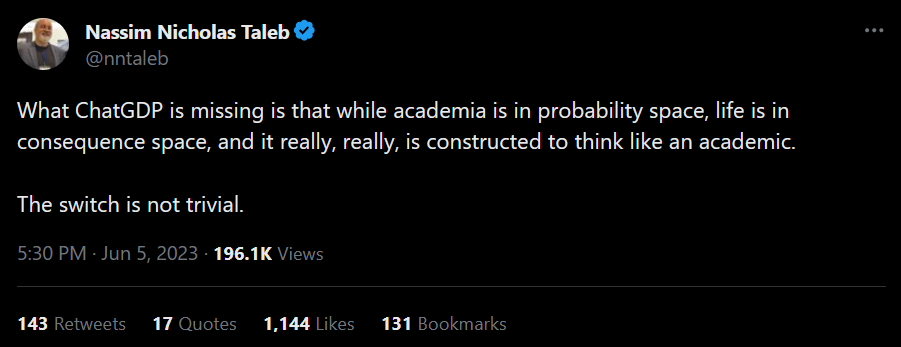Since I have been writing about unexpected statistical outcomes due to skews in the dataset, I thought I'd take a look at Nassim Taleb's twitter to see what he has been tweeting about. I came across this tweet

This is quite an interesting tweet. Taleb mentions two terms: Probability space and consequence space that is the topic of today's note.
Let us take an example first, one that is a favourite of Taleb: Russian roulette. Someone loads a single bullet into a gun with six chambers and spins the chamber. They then offer $1,000 if you will point the gun at yourseft and press the trigger. Will you do it?
If you look at the probabiliby, then there is a 5 in 6 chance that you pull the trigger on an empty chamber. This is the probability space. It is stacked in your favour. An economist would conclude that a "rational" person should take the chance.
Yet, most people in real life will probably pass on the offer. Why? Because the 1 in 6 chance that you pull the trigger on chamber loaded with the bullet. Even though that outcome is much less likely, the consequences are severe. This set of possible consequences is the consequence space.
What Taleb is saying here is that most people base decisions on the consequence space, and not on the probability space. Create a gun with a hundred chambers and a single bullet and people still won't play the game.
Recent Articles
- • Agentic coding need not be 100% accurate Feb 02, 2026
- • Founder Mode Sep 02, 2024
- • AI: Embeddings Aug 30, 2024
- • Product Death Cycle Aug 30, 2024
- • LinkedIn Queens Aug 24, 2024